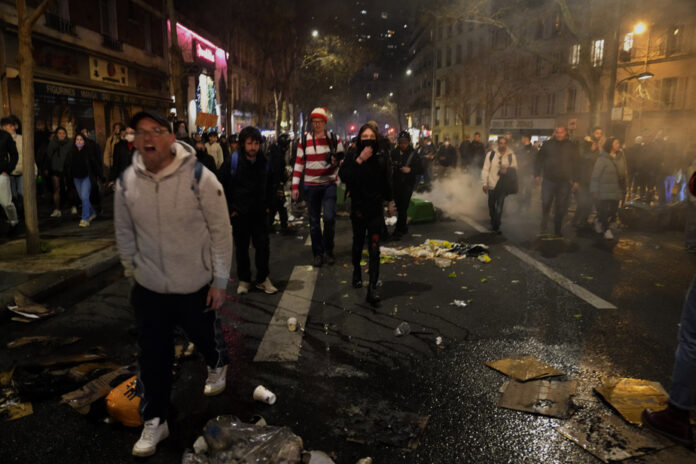(Paris) The French government must face two motions of censure in the National Assembly on Monday, after its passage in force on the unpopular pension reform, the president having finally called for appeasement while social tension is high in the country.
The executive is for the moment claiming its confidence in the face of an opposition too divided, he thinks, to overthrow him.
For a motion of censure to be adopted, “it would […] have to bring together a coalition of the ‘against’, the ‘anti’, to obtain a very heterogeneous majority without a common political line”, confided the Minister of Work, Olivier Dussopt, in the Sunday newspaper.
“I don’t think there will be a majority to bring down the government,” agreed Economy Minister Bruno Le Maire when interviewed by the daily Le Parisien. “But it will be a moment of truth. »
Two motions of censure will be examined Monday in the National Assembly, following the recourse Thursday by the government to article 49.3 of the Constitution, which allows adoption without a vote if no motion of censure succeeds.
Emmanuel Macron, the true initiator of “49.3”, who had remained silent on the subject since Thursday, in a message to the Presidents of the Senate and the Assembly sent to AFP, expressed “his wish that the text on pensions can go to the end of his democratic journey with respect for all”.
After two months of consultations, and an intense union and popular mobilization against the project, embodied by the postponement of the retirement age to 64, against 62 today, the forced passage of the executive was vilified by the ‘opposition.
But it will have to be united, from the far right to the radical left, and count on around thirty votes from the deputies Les Républicains (LR, classic right) to overthrow the government, which only has a plurality to the Assembly, and push back the pension reform.
An improbable scenario, no government having fallen following a motion of censure since the advent of the Fifth French Republic in 1958, but not impossible for all that, while the pressure is mounting on parliamentarians.
The leader of the LR party, Éric Ciotti, who supports the government project, saw his permanence rocked overnight from Saturday to Sunday in Nice (south) with the inscription “The motion or the pavement”. Other pro-reform parliamentarians have also been targeted.
Mr. Macron, who is playing his credit and his second term on this reform, reaffirmed “his support for Parliament and all of its parliamentarians, as well as the mobilization of the government so that everything is done to protect them”, according to the Elysée.
Denouncing a “denial of democracy”, demonstrators gathered again on Sunday in several cities in France, notably in Paris. Incidents occurred in the capital on Thursday, Friday and Saturday evening.
On the social front, several key sectors of the economy remain disrupted, particularly in transport, waste collection and fuel supply. The largest refinery in the country, located in Normandy (north-west), has begun to be shut down by opponents and other sites could follow.
France is one of the European countries where the legal retirement age is the lowest, without the pension systems being completely comparable. The government has chosen to extend working hours to respond to the financial deterioration of pension funds and the aging of the population.
“Let’s go to clarity. Clarity is the vote, “launched the leader of the majority group in the Assembly, Aurore Bergé, interviewed by the media France info, France inter and Le Monde.
And if the government were overthrown, “we have to assume, we go back,” she added, with a possible dissolution that President Macron, currently at the lowest in the polls – 28% approval – could decide since. 2019.
Jean-Luc Mélenchon, the herald of the radical left, does not believe in such a scenario. In the next election, Mr. Macron “would take the beating of the century, therefore, he won’t,” he told another media panel. And to predict: “The fight will continue regardless of the outcome. »


















